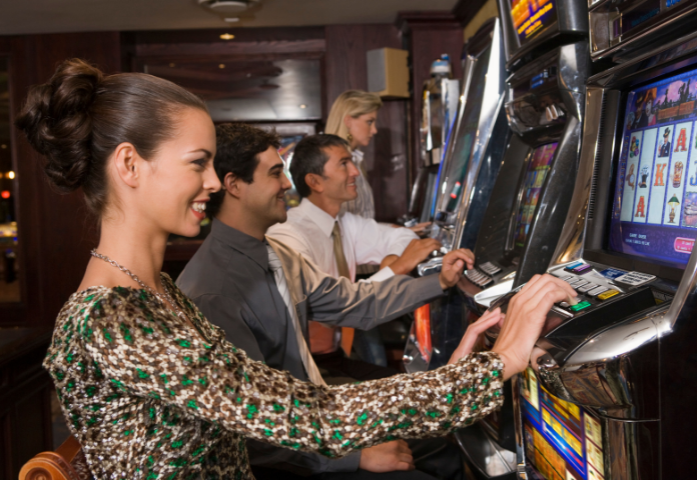The allure of the casino floor, with its bright lights, buzzing energy, and promise of fortune, has long captivated individuals seeking excitement and entertainment. However, amidst the thrill of gaming lies a crucial factor that governs entry: age restrictions. Just how old must one be to partake in the exhilarating world of casino gambling? This question is not only important for aspiring players but also for casino operators and regulators alike. In this comprehensive guide, we delve into the intricacies of age requirements for gambling in casinos, exploring the legal frameworks, societal considerations, and implications of age restrictions.
Legal Age Requirements: A Global Perspective
Across the globe, age requirements for casino gambling vary significantly, reflecting the diverse regulatory landscapes and cultural attitudes towards gambling. In many jurisdictions, the legal gambling age is set at 18 or 21 years old, with some regions imposing stricter limitations for specific types of gambling activities.
In the United States, for instance, the legal gambling age varies by state. While the majority of states set the minimum age at 21 for casino gambling, several states allow individuals as young as 18 to gamble in certain venues, such as tribal casinos or racetracks. This patchwork of regulations can be attributed to the complex interplay between federal, state, and tribal laws governing gambling activities.
Similarly, in countries like the United Kingdom, the legal gambling age is set at 18 for most forms of gambling, including casino gaming, sports betting, and online gambling. However, there are exceptions for certain types of gaming machines and lotteries, where individuals must be at least 16 years old to participate.
In contrast, other countries enforce stricter age restrictions, with some setting the minimum gambling age at 21 or higher. For example, in Australia, individuals must be at least 18 years old to enter a casino or engage in other forms of gambling, with the exception of certain types of gaming machines located in certain jurisdictions.
Rationale Behind Age Restrictions
The establishment of age requirements for casino gambling is rooted in various societal and regulatory objectives, including the protection of minors, the prevention of problem gambling, and the promotion of responsible gaming practices.
One of the primary rationales for setting a minimum gambling age is to protect vulnerable individuals, particularly minors, from the potential harms associated with gambling. Adolescence is a critical period of development characterized by heightened susceptibility to risky behaviors and poor decision-making. Allowing underage individuals to gamble exposes them to financial risks, psychological harm, and the potential for developing problematic gambling behaviors later in life.
Furthermore, age restrictions serve as a safeguard against problem gambling, a pervasive issue that can have devastating consequences for individuals, families, and communities. Research has consistently shown that early exposure to gambling increases the likelihood of developing gambling-related problems, including addiction, indebtedness, and mental health issues. By limiting access to gambling venues and activities based on age, regulators aim to mitigate these risks and promote healthier gambling habits among adults.
Moreover, age requirements play a crucial role in ensuring the integrity and legitimacy of the gambling industry. By enforcing age verification measures and stringent penalties for non-compliance, regulators strive to uphold the principles of fairness, transparency, and responsible conduct within the gaming sector. This not only protects consumers from exploitation and fraud but also fosters public trust and confidence in the regulatory framework.
Enforcement and Compliance
While age restrictions are enshrined in legislation and regulations, their effectiveness hinges on robust enforcement mechanisms and compliance measures. Casino operators are responsible for implementing stringent age verification procedures to prevent underage individuals from accessing their premises or engaging in gambling activities.
These measures may include requesting valid forms of identification, such as driver’s licenses, passports, or government-issued ID cards, to verify the age and identity of patrons. Additionally, casinos may employ age verification technologies, such as biometric scanners or age estimation algorithms, to enhance the accuracy and efficiency of the verification process.
Regulators play a pivotal role in overseeing compliance with age requirements and holding operators accountable for any breaches of the law. Through routine inspections, audits, and enforcement actions, regulatory authorities ensure that casinos adhere to strict age verification protocols and take appropriate measures to prevent underage gambling.
Conclusion
In conclusion, age requirements for casino gambling are a fundamental aspect of regulatory frameworks aimed at safeguarding vulnerable individuals, promoting responsible gaming practices, and upholding the integrity of the gambling industry. By setting minimum gambling ages and enforcing robust age verification measures, regulators seek to strike a balance between protecting public welfare and preserving individual freedoms.
As the global landscape of gambling continues to evolve, policymakers, regulators, and stakeholders must remain vigilant in addressing emerging challenges and adapting regulatory frameworks to reflect changing societal norms and technological advancements. Through collaborative efforts and evidence-based interventions, we can strive towards a safer, more equitable gambling environment that prioritizes the well-being of all individuals, regardless of age.
how old do you have to be to gamble in a casino FAQ
Navigating the age requirements for gambling in casinos can be confusing, especially for those new to the world of gaming. To provide clarity on this important topic, we’ve compiled a comprehensive FAQ addressing common questions regarding age restrictions in casinos.
1. What is the minimum age to gamble in a casino?
The minimum age to gamble in a casino varies depending on the jurisdiction. In many places, including the United States and the United Kingdom, the legal gambling age is typically 18 or 21 years old. However, it’s essential to check the specific regulations in your area, as age requirements may differ by state or country.
2. How do I know if I meet the age requirement to gamble?
To determine if you meet the age requirement to gamble in a casino, you should refer to the laws and regulations governing gambling in your jurisdiction. These guidelines are typically established by government authorities and specify the minimum age for participation in various forms of gambling activities.
3. Do casinos check IDs to verify age?
Yes, most casinos have strict protocols in place to verify the age of patrons before allowing them to gamble. Upon entering the casino or attempting to engage in gambling activities, individuals may be required to present valid forms of identification, such as a driver’s license, passport, or government-issued ID card. Casinos take age verification seriously to ensure compliance with legal requirements and protect against underage gambling.
4. Can I gamble if I’m under the legal age?
No, underage gambling is strictly prohibited and carries serious consequences. Casinos are legally obligated to enforce age restrictions and may face penalties for allowing minors to gamble on their premises. Additionally, individuals who attempt to gamble while underage risk being denied entry, facing fines, or even legal repercussions.
5. Are there any exceptions to the minimum age requirement?
In some jurisdictions, there may be exceptions to the minimum age requirement for specific types of gambling activities or venues. For example, certain states in the U.S. allow individuals as young as 18 to participate in limited forms of gambling, such as horse racing or bingo. However, these exceptions are typically outlined in local laws and regulations and may vary depending on the jurisdiction.
6. Can I accompany someone who is of legal age to the casino if I’m underage?
While the rules regarding accompanying individuals who are underage vary by casino and jurisdiction, it’s essential to understand that casinos prioritize compliance with age restrictions. In most cases, individuals who are underage may not be permitted to enter the gaming areas of the casino, even if accompanied by someone of legal age.
7. What should I do if I suspect someone is underage and attempting to gamble?
If you suspect that someone is underage and attempting to gamble in a casino, you should immediately notify casino staff or security personnel. Casinos have procedures in place to handle such situations, including verifying the individual’s age and taking appropriate action to prevent underage gambling.
8. Where can I find information about the legal gambling age in my area?
Information about the legal gambling age in your area can typically be found on the website of your state or country’s gaming regulatory agency. Additionally, you can consult local laws and regulations or contact the casino directly for clarification on age requirements.
Also Read: https://alpinecasino.co.uk/

